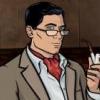-
More SARC briefings soon.
^^This hints to the fundamental problem. The common denominator at work across the Air Force is that very few seem willing or capable to pause long enough to consider and understand the (any) problem, big or small, before they take action on it. One of my favorite distillations of 'leadership' can help illustrate what I mean: "General von Moltke divided the entire officer corps into four distinct types, depending on their mental and physical characteristics: 1) mentally dull and physically lazy, 2) mentally bright and physically energetic, 3) mentally dull and physically energetic, and 4) bright and lazy. Type 1: The officers who were both mentally dull and physically lazy were given simple, repetitive, unchallenging tasks. Type 2: The officers who were both mentally bright and physically energetic, Von Moltke felt were obsessed with micromanagement and accordingly would be poor leaders. Therefore, he never promoted this type of officer to the status of commanding officer of the German General Staff. Type 3: The officers who were mentally dull but physically energetic, Von Moltke considered dangerous. To him, they were walking, talking mistake generators that required constant supervision. Because they created messes faster than could be fixed, these officers were too much trouble and were dismissed. Type 4: The mentally bright yet physically lazy officer, our hero, is the type of person Von Moltke felt should ascend to the lofty heights of ultimate command. Why? Because he is smart enough to see what needs to be done but is also motivated by laziness to find the easiest, simplest way to succeed. And, of course, such an officer would never sully his hands with details, vastly preferring to delegate those concerns to the eager beaver types." We have too many type 3 officers in positions of power and influence. I don't know why, but it seems to me that these types are heavily rewarded/regarded in the Air Force:
-
Gun Talk
TL;DR - Retired General and strong bipartisan support recommending to end the restrictions commanders currently have to gather information about their troops' private ownership of firearms. https://thehill.com/b...rsonal-firearms Despite seeing how this policy could help to stem the high rates of suicide in the military, I'm mostly against the idea. I don't like the thought of commanders, or anybody else in my chain of command, getting involved in my or any other service members' firearm ownership. I see this as just another invasion by big blue into my private life - can I have a life of my own please? I can see this morphing into a freak show - worse than all the hoops motorcycle riders have to jump through currently - endless firearm based CBTs, mandatory safety meetings and classes, currencies, forms to fill out and have signed, etc... and for what? A decline in suicides? Yea right! This is about control. I mean, it's not being spun as control currently, but sure as shit, that's what this is about. Edit: Grammar and formatting.
-
Drone Pilots: We Don’t Get No Respect
Are the pilots ok?
-
Promotion and PRF Information
You can deduce the allocation percentages Air Force wide with these data (pilots): 1002 Pilots up for board - 803 DP vs 199 P Roughly 4/5 got a DP You can figure the numbers for shoe clerks with the whole data set if you like. Questions I can't answer: Do DP allocation percentages vary Wing to Wing? If so, how many does my Wing get this year for my board?
-
Enlisted Marine to AF Pilot?
I was enlisted 5 years in the Marines before I became an Air Force pilot. I took a different route than what you're trying for, however. I served my time in the Marines entirely, got my DD214 then immediatly started college and joined AFROTC as any civilian would. It worked out great for me. If I had to do it all over again I wouldn't change anything - I most certainly wouldn't have tried to balance active duty Marine service and getting a degree (though I just did the same thing in the Air Force with my 'box-checked' masters) and then taking the big-chance of trying to get a pilot slot via OTS. I recommend at least looking into going the AFROTC route.
View in the app
A better way to browse. Learn more.


